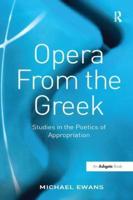Publisher's Synopsis
Schenkerian theory has become recognized internationally as a valuable method of music analysis. But Viennese theorist Heinrich Schenker (1868-1935) also evolved a 'New Teaching' ('die neue Lehre') which was as organic as the theory itself, and as novel in the connections that it sought to draw between the increasingly individuated disciplines of theory, composition, musicology and performance. This book describes Schenker's teaching of three of his most advanced colleagues, Reinhard Oppel, Hans Weisse and Wilhelm Furtwangler, in the early 1930s and has important ramifications for the current and future dissemination of the Schenkerian approach. This examination of Schenker's teaching methods was made possible by Timothy Jackson's discovery in 1995 of a major collection of papers, books and documents belonging to Oppel. In conjunction with documents preserved in the Salzer, Oster and Jonas Collections these 'new' sources shed considerable light on the development of the 'New Teaching'. Schenker's commentaries on Oppel's realizations of works by Handel and Bach are essentially lessons in composition and figured bass informed by Schnenker's late analytical technique. In this book, Timothy Jackson reconstructs these commentaries and investigates the early history of Schenkerian movement. By examining the 'New Teaching' as practiced by Schenker himself in the 1930s, Jackson suggests a 'new' approach to the pedagogy of the Schenkerian theory, namely Schenker's own. Modeled on Schenker's teaching, Schenkerian analysis will be conceived not as a 'theory' course, but rather as an approach to all musical study.









